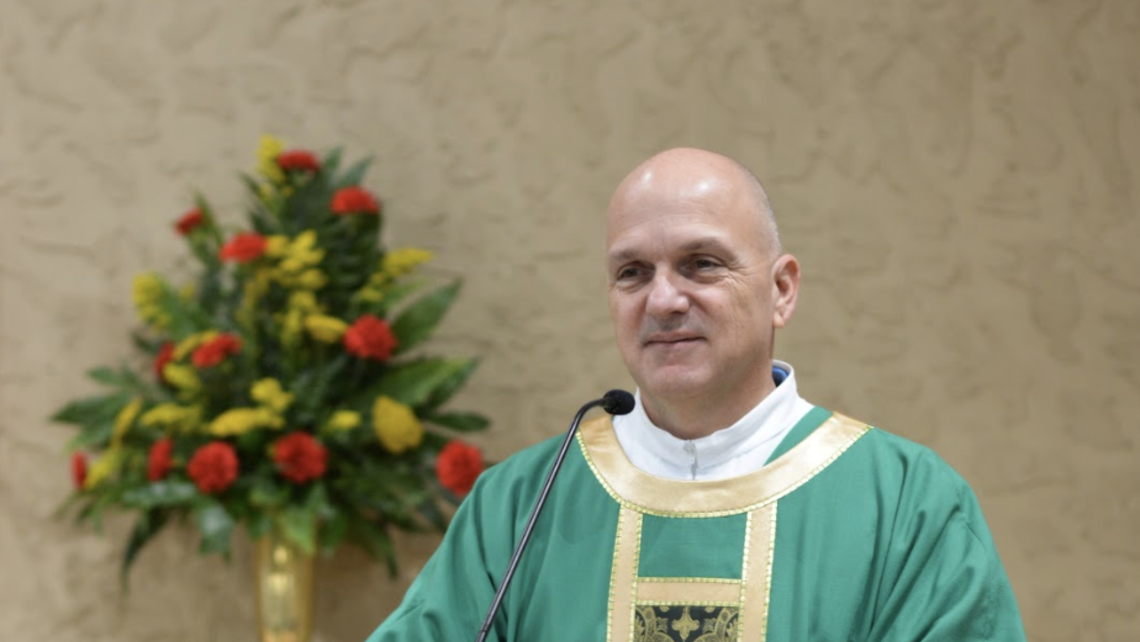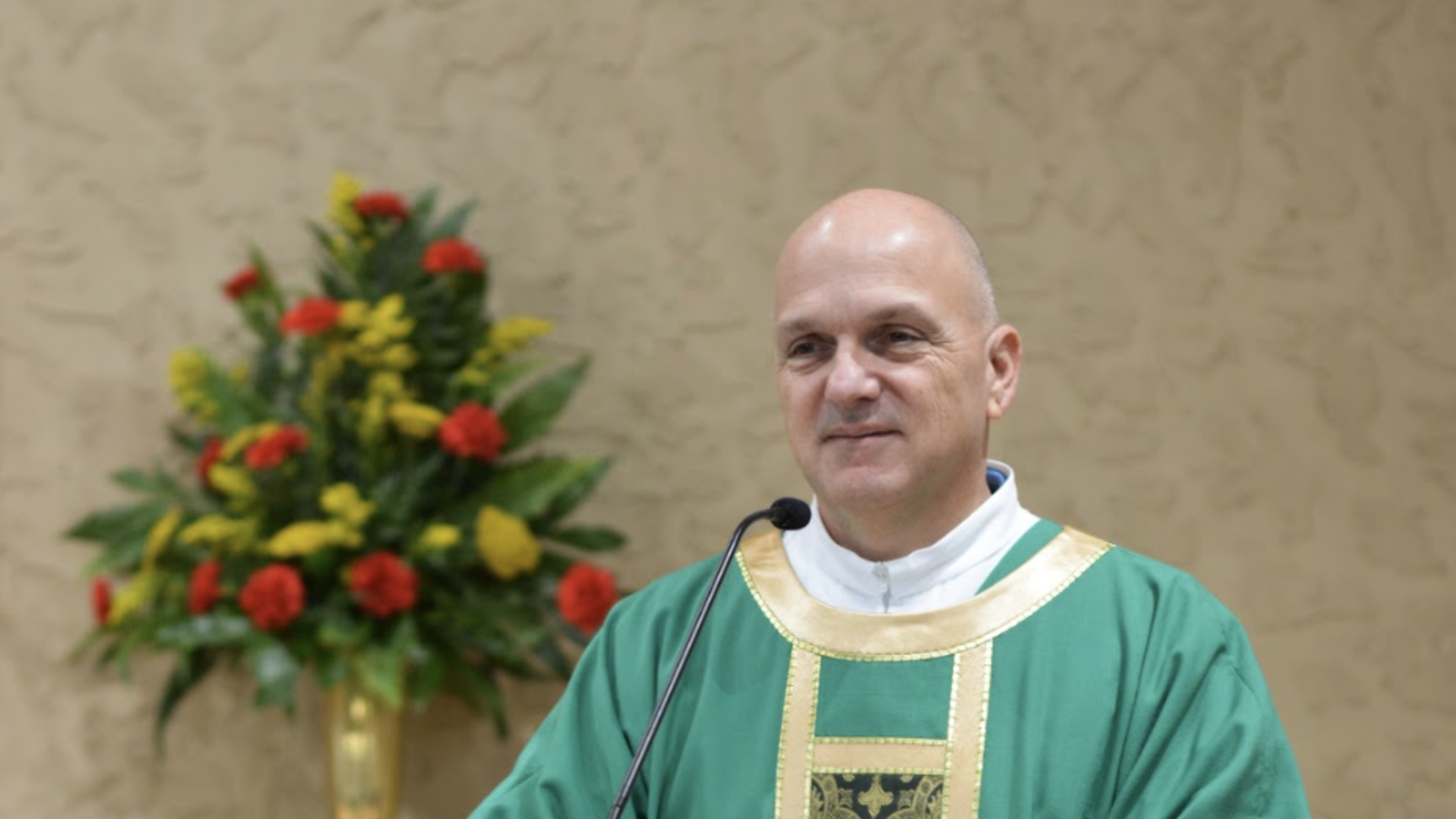
Brothers and sisters – the reading from the book of Sirach sets the scene for all of today’s readings. The writer offers practical wisdom on how to live according to God’s instructions. Sirach reminds us that God has gifted us with the power to choose freely: “Before man are life and death, good and evil, whichever he chooses shall be given him.”
Free will – It’s God’s greatest gift to us, and it’s also our riskiest characteristic. Free will has enabled us to decide for ourselves what kind of people we will be. It has enabled us to create music and art, to build cities and roads, to marry and have children. It has also enabled us to destroy instead of create, to hurt and betray instead of heal and build up. Most important, it’s through our free will that we decide whether to follow Jesus or our own thoughts and desires.
Sirach seems keenly aware of how much of a two-edged sword our free will can be. Each of us, he says, is free to choose between “fire and water, . . . life and death, good and evil”. And God will respect whatever we choose.
Of course, our heavenly Father longs for us to choose life in him, but he will never force himself on us. He is not like the petty gods dreamed up by the pagans, who use threats and manipulation to keep their people in line.
God also knows that free will has consequences. And so, Sirach teaches, “Whichever he chooses shall be given him”. While God honors our choices, he also respects the results those choices bring. Word Among Us
Today we also hear a part of the Sermon on the Mount in the Gospel, which focuses on three of six contrast statements by Jesus that mark off the differences between former interpretation of the Jewish law and Jesus’ own teaching. Jesus states that he did not come to abolish the law of the prophets – He came to fulfill them.
Jesus has higher standards than anyone who has ever lived. He has the highest standards for harmony in relationships, purity in sexuality, faithfulness in marriage, truth in speech, and love for enemies. Jesus commands us to destroy our bodies rather than look lustfully at someone else's body, and to divorce ourselves from unforgiveness and sin rather than from our spouses. Jesus commands us to express the truth rather than express our own agenda. We are to treat our enemies even better than we treat our friends.
Jesus' standards are intentionally difficult to achieve. Humanly speaking, we cannot meet these standards, no matter how hard we try. Jesus is not into self-improvement, but self-denial. We should not be concerned with behavior modification but instead rebirth. We should not try to educate our old nature but drown it in the waters of Baptism. We are not trying to make ourselves better, but to let Him make us new.
Jesus taught reverence and respect for God’s law - reverence for God himself, reverence for the Lord's Day, reverence or respect for parents, respect for life, for property, for another person's good name, respect for oneself and for one's neighbor lest wrong or hurtful desires master and enslave us. Reverence and respect for God's commandments teach us the way of love - love of God and love of neighbor. What is impossible to humans is possible to God who gives generously of his gifts and the power of the Holy Spirit to those who put their faith and trust in him.
God gives us the grace, help, and strength to love as he loves, to forgive as he forgives, to think and judge as he judges, and to act as he acts with mercy, loving-kindness, and goodness. The Lord loves righteousness and hates wickedness. As his followers we must love his commandments and hate every form of sin and wrong-doing. If we want to live righteously as God desires for us, then we must know and understand the intention of God's commands for us, and decide in our heart to obey the Lord. Do you seek to understand the intention of his law and to grow in wisdom of his ways? Laudate
It isn’t easy living up to these standards that Jesus set for each of us. In fact, it can be downright daunting.
Many years ago, my wife and I were in marriages that were missing one of the main components that made them sacramental in nature – God was missing. After years of struggling to make things work in our former marriages, both of us ended up divorced.
Each of us knew that we wanted God back in our lives if we were going to enter into marriage again. Through the grace of the sacrament of Reconciliation, guidance from priests and religious, and the annulment process we were able to have our current marriage blessed in the Church. With this blessing came an intimate relationship with God, which ultimately led me down the path of the permanent diaconate. Both of us have grown in our faith and have a deeper spirituality with the Father, Son and Holy Spirit.
I tell you this not because I’m any better than any of you sitting here today. I tell you this because I too am a sinner and it was through the sacraments of Reconciliation, Eucharist and Marriage that I was able to have a renewed relationship with God. A relationship that continues to grow each day. One that brings joy knowing that I can go to our Creator any time there are struggles in my life or when I simply need to give thanks for the many blessings in my life.
Every one of us is called to a deeper relationship with our Trinitarian God. The way there is through obedience of the ten commandments, reading the scriptures, prayer and frequent receipt of the sacraments of the Church.
In reading today’s Gospel; we hear that all of us are guilty of some type of murder, adultery or bearing false witness against our neighbor. Jesus says that if we are lustful or angry with others, we are guilty of these offenses.
This may seem unfair, but entering into the kingdom requires a completely clean heart. Nothing impure can live in the presence of God. It also may seem impossible. How can we become completely pure of heart? The short answer is, we can’t. But God can! If we open ourselves to God’s Spirit, pray often, love much, go to reconciliation and receive the Eucharist; God will cleanse us. Then we shall become the clean of heart who see God. Living Faith
As we get closer to the season of Lent, we need to reacquaint ourselves with the ten commandments, accept the fact that we are sinners and know that God’s love and grace is available to each of us through the sacrament of Reconciliation.
Start planning now how you will make the most of the upcoming Lenten season. Delve into Scripture. Spend some quiet time with the Lord at Adoration. Attend at least one weekday Mass each week. Come out to pray the Rosary and Stations of the Cross each Friday during Lent. Reconcile broken relationships with family and friends. Attend the Healing Our Church program. Be generous with the gifts that God has given each of us to help build the kingdom of God here on earth. Most important, reconcile with God and grow your relationship with Him.
What kind of person is God calling each of us to be?
What kind of person do you want to be?
What will your neighbors say, if asked what kind of person you are?
Remember the life you live here on earth is just a single second in eternity. Be all you were meant to be – be a faithful follower of the Lord. Be like Jesus to all those that you meet.


